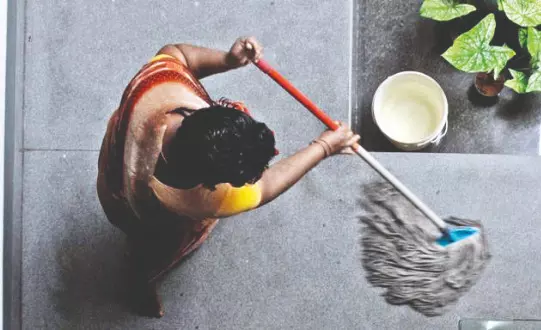Domestic workers, unions raise alarm over ‘Insta Help’ apps

New Delhi: For years, Rekha, a migrant from Bihar who has been working as a domestic worker in Malviya Nagar, has built a stable income of around ₹20,000 - ₹25,000 per month by working in five households.
Despite long hours and juggling demands of different employers, she says, “At least I know the families I work for, and they know me. If I fall sick, they understand. I can ask for help when needed.” But with new app-based services like ‘Insta Help’ entering the picture, she fears all of that may vanish.
Launched recently by Urban Company, the ‘Insta Maid’ service — later renamed ‘Insta Help’ after public criticism — promised to ‘deliver’ a domestic worker to your doorstep in just 15 minutes, charging users as little as ₹49 per hour.
Although the company clarified that this rate was a promotional offer and not the worker’s actual pay, backlash over the terminology and exploitative pricing has not died down.
Other platforms like ‘Broomers’ who offer similar services are currently operating in South Delhi.
Domestic worker unions and labour experts warn that such “Uber-style” models reduce workers to on-demand commodities.
“The system is already exploited,” said a member of the Delhi Gig and Platform Workers’ Union (DGPWU), “but now it will be from both, as we see in the case of gig workers already. They’ll take money from both ends.”
Several domestic workers in Delhi say the new model threatens hard-won relationships and support systems they’ve built with employers. “Sometimes I borrow ₹2,000 from my didi when my daughter’s school fee is due. Will an app help me in that situation?” asked Meena, who has worked in Greater Kailash for over a decade.
The idea of hiring domestic workers the same way one hails a cab doesn’t sit right with Roshni, a researcher on informal labour. “This isn’t a one-time plumbing job. Domestic work is personal and long-term. There’s an emotional and social thread in it,” she explains. “These platforms strip away the protective aspects of that relationship, while keeping the extractive parts.”
Safety is another major concern. A GPWU member highlighted how app-based workers often have no clear employer, which leads to confusion and lack of accountability.
“Who do you go to if there’s harassment? The app says it’s just a facilitator, not an employer,” she said. She also pointed out how caste and religious bias can influence ratings, making it a “tricky terrain.”
An even deeper issue lies in the model’s demand for instant service. “How can you guarantee a worker in 15 minutes without having people sit idle, unpaid?” asks Aarti, a union member.
“It creates a reserve of desperate workers, constantly waiting for a ping.”For domestic workers like Rekha and Meena, these apps offer no real improvement — only more uncertainty.
“We don’t want to be rated. We want respect and regular pay,” Rekha said. Union leaders are calling for urgent regulation. “Domestic workers, whether online or not, must be included under labour laws,” said a representative from DGPWU. “The state cannot leave them at the mercy of private aggregators.”



